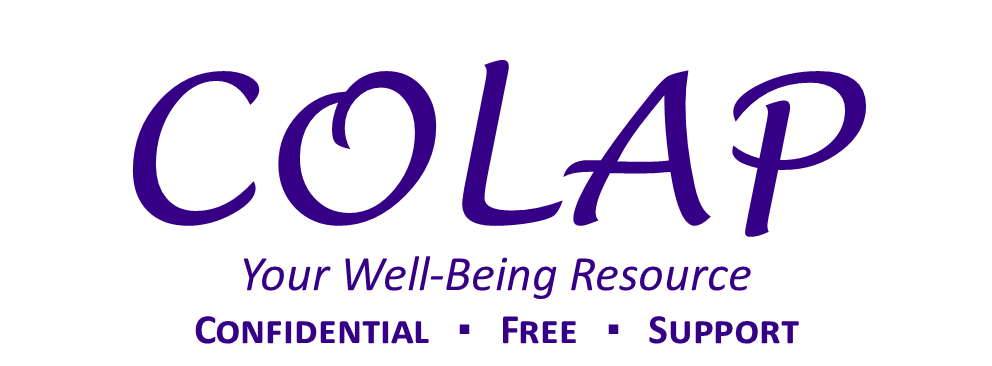Attention Management

Colorado Lawyer Assistance Program
2490 West 26th Avenue
Denver, CO 80211
303-986-3345
www.coloradolap.org
"Learning to ignore things is one of the great paths to inner peace"- Linus Van Pelt
In research and articles about the habits of successful people, good time management practices are always mentioned as a factor in success. Part of good time management, however, is attention management. What catches and holds your attention during the day? Take a moment and think about what you focus on at different times of the day: when you wake up, as you get ready for work, as you drive to the court or as you drop the kids off at school, while you are on the bench, during lunch, etc. Do you think about the past or the potential future? Do you worry about mistakes or watch for other people making mistakes? Do you look for problems to be solved? Are you focusing on what is going on with people around you rather than what you are doing or feeling?
Life is full of distractions. As if the daily “to-do list” in your personal lives isn’t enough, as judges, you focus on other people’s problems, thereby inheriting the grievances of others. In addition, whether you watch the news or reality television shows that highlight other people’s lives, you are still focusing on other people’s problems during your “down” time. The body and brain have only so much energy that can be expended in a day. Attempting to focus on multiple things at once, or focusing more on other people’s issues than your own, drains you physically, cognitively, and emotionally.
It’s no surprise that the legal profession, including judges, have high rates of depression, anxiety, and substance use; all of these can be symptoms of being worn-out and not managing attention or focus very well. Even though you get to choose what you focus on in any given moment, all humans get into mental “ruts” because the brain likes to repeat the same type of thought patterns from day-to-day in order to conserve energy. Ask yourself what types of thoughts you repeat daily. Do you focus on other people’s lives rather than your own? Are you focusing on the past or potential future more than the present moment? As a judge, both of these are occupational hazards. Your job is to focus on other people and their problems throughout the day, and usually involves information or evidence that occurred in the past or planning for the future through court orders or sentencing. How can you, as a judge, focus on the present and your own experience while still being effective on the bench?
There are several adages that apply to attention management: “pick your battles,” “not my monkeys, not my circus,” “successful people don’t worry about what others are doing,” “what you think of me is none of my business,” “don’t let people live rent free in your mind,” “focus on what matters,” “less is more,” etc. What mantra could you use as a reminder to narrow your focus and manage your attention while spending your day on the bench, where you are supposed to be focusing on other people rather than yourself? Maybe it’s during a lunch break, or before you leave the courtroom or your chambers for the day. Certainly as you head home, try a mantra that helps you refocus your thoughts and attention away from litigants and their problems.
As Lao Tzu said, “If you correct your mind, the rest of your life will fall into place.” In order to correct the mind, you have to focus and manage your attention mindfully and thoughtfully. When you are feeling mentally scattered, stressed, angry, frustrated, or depressed, take a moment to examine what you are focusing on. Is that something that you should be giving your attention to, or is it something you could ignore? Are there other things to place your focus on that would instead lead to more inner peace? Start tracking where your attention goes today; you’ll be surprised at where your focus is going, and you’ll see the alternatives immediately!
By Sarah Myers, JD, LMFT, LAC Executive Director, Colorado Lawyer Assistance Program © Colorado Lawyer Assistance Program, 2020
The Colorado Lawyer Assistance Program (COLAP), your free, confidential and independent well-being program for Colorado judicial officers, is available at www.coloradolap.org or by calling 303-986-3345. If you or a colleague are in need of confidential support, referrals, direction on how to resolve personal or professional stressors, or are interested in a free well-being consultation, please contact COLAP directly for assistance.